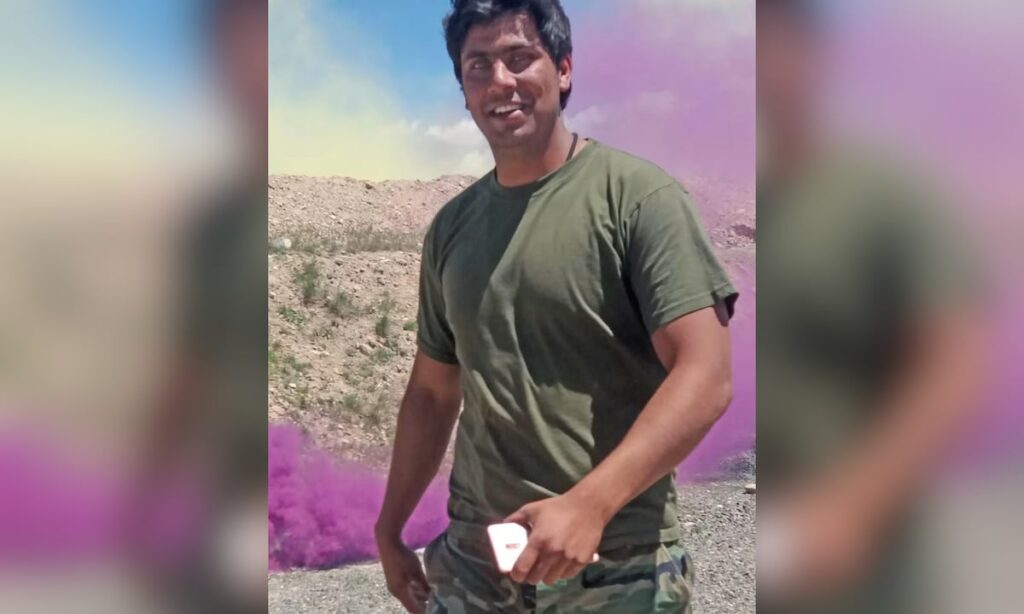The Green Berets who served alongside Abdul Rahman Waziri in Afghanistan remember him as a gentle giant, always ready with a smile. Their shock and disbelief were palpable when they learned he had been shot dead outside his new home in Houston, Texas. Two months after Waziri’s tragic death, his comrades are still waiting for justice.
On June 17, the Houston Police Department announced that the case of Waziri’s killing, which occurred on April 27 and was allegedly sparked by a parking dispute, would go before a grand jury. Despite identifying the shooter at the scene and taking his statement, no arrest has been made. Ben Hoffman, a retired master sergeant who met Waziri in Afghanistan, where Waziri was part of the National Mine Reduction Group (NMRG) protecting Green Berets from hidden explosives, expressed his outrage. “It made me really mad that this guy, who fought for years to keep me and my buddies safe in the special operations community, to come to the United States and die in general was bad enough,” Hoffman told Military Times.
Background and Investigation Details
Waziri, 31, was found lying next to a white Toyota Camry, having been shot multiple times. He was pronounced dead at Ben Taub General Hospital. A 31-year-old man from the same apartment complex identified himself as the shooter. Police took his statement and his gun but released him after consulting with the Harris County District Attorney’s office. A Houston Police Department official stated that the investigation had concluded and referred all questions to the DA’s office. Damali Keith, a spokeswoman for the DA, said the case remains under investigation with no set timeline for a grand jury decision.
Surveillance footage, first reported by NBC News, shows Waziri’s Camry pulling into a parking area, followed by a black Kia sedan. An altercation ensues, largely obscured by a parking structure, with the video ending as the alleged shooter walks away calmly. Omar Khawaja, a lawyer for Waziri’s family, uncovered the video and found a witness who provided a fuller account of the incident. The witness described Waziri checking his mail and returning to his car, where the confrontation began. The alleged shooter reportedly kicked Waziri’s car, leading to a physical altercation. The man then retrieved a gun from his vehicle and shot Waziri.
Community and Veteran Response
Led by Army veteran Thomas Kasza, about two dozen former Green Berets who served with Afghans in the NMRG signed a letter to the Harris County DA’s office in May, demanding justice and answers. “Had Abdul Rahman worn an American flag on his shoulder, the public would never tolerate this breathtaking degree of opacity,” they wrote. “This is not a request for special treatment. This is a request for treatment commensurate with the service he rendered to our country.”
Waziri’s wife and two young children have since moved to Tampa to be near family, said his brother, Abdullah Khan. Khan, who helped U.S. troops as a translator in Afghanistan, came to the U.S. on a special immigration visa in 2020, a year before Waziri left Afghanistan. Waziri had earned a commercial driver’s license to work as a truck driver and had established a home for his family in Texas. “We came here, and we were… feeling [more] safe here than Afghanistan,” Khan said. “We got out, and America was safe for us, but unfortunately, America is also not safe.”
Legal and Social Implications
Khawaja cited Texas’ laws protecting shootings allegedly in self-defense as a possible reason the killer was not arrested. He also noted that the decision to release the man had a “major chilling effect” on witnesses. Shireen Connor, a social worker supporting Afghan resettlement in the U.S., believes recent actions in the case, including the grand jury referral, resulted from pressure applied by veterans and media attention. However, she remains concerned that the shooter, who law enforcement has not confirmed remains within their jurisdiction, will face no consequences. “I can’t even consider what’s happened to date a miscarriage of justice,” she said, “because no justice has been applied.”
The announcement comes as the U.S. continues to grapple with the complexities of integrating Afghan allies into American society following the military withdrawal from Afghanistan. The case underscores the challenges faced by immigrants seeking refuge and safety in the U.S., only to encounter violence reminiscent of the conflicts they fled.
As the community and veterans await further developments, the call for justice for Abdul Rahman Waziri remains a poignant reminder of the sacrifices made by those who served alongside U.S. forces and the ongoing quest for accountability and closure.
